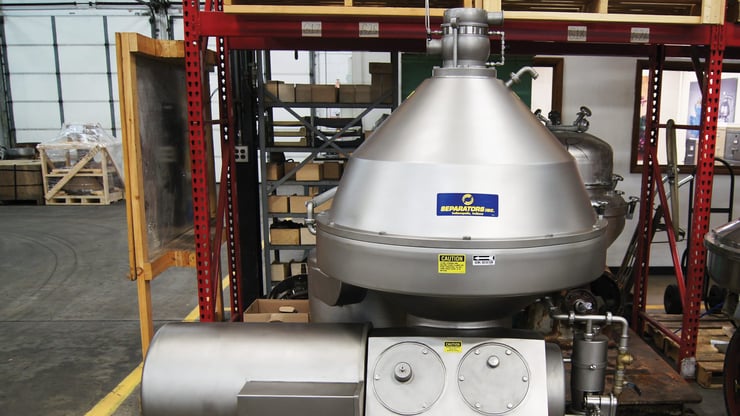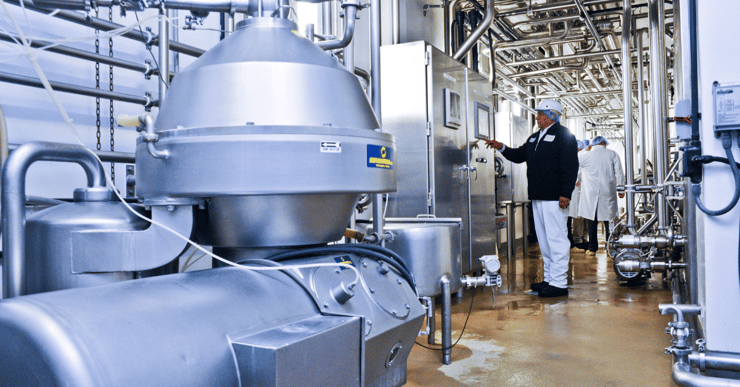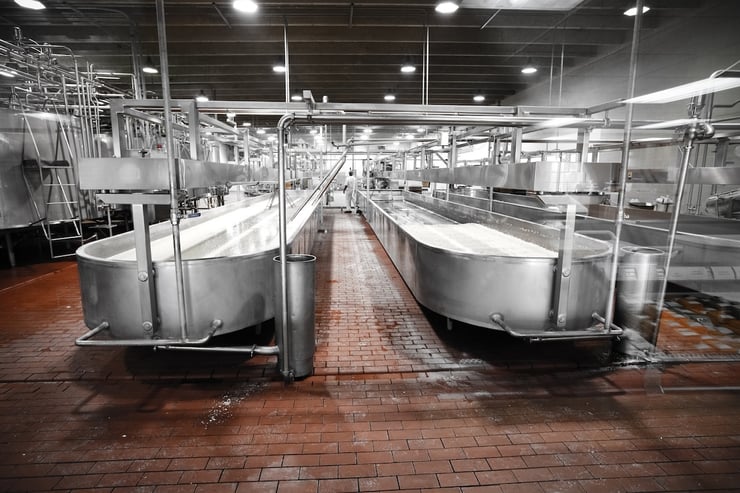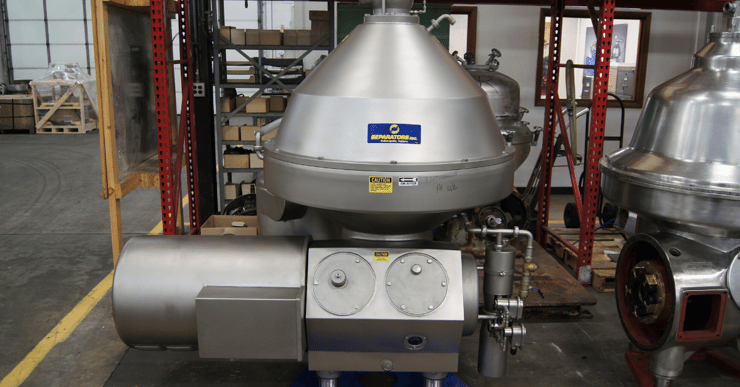Search Separators
Did You Know a Remanufactured Centrifuge Cuts Your Wait Time in Half? Here's How.
One of the biggest obstacles our customers face is time. There never seems to be enough of it. And in the case of centrifuge failure, getting your current machine operational or replacing it with a new one is an urgent task. Every moment that a machine is down can lead to lost production, decreased plant efficiency, and wasted employee time.
Luckily, we've developed a way to get facilities back to production-ready much faster than the OEMs can provide a new centrifuge. Our Quick Delivery Program reduces the wait time for facilities in need of high-quality centrifuge equipment. We can deliver a remanufactured centrifuge that fits your current layout in weeks instead of months.
How to Balance a Centrifuge with Separators [SlideShare]
An unbalanced centrifuge is a recipe for disaster. Centrifuges spin at very high speeds, and they do so for hours on end. Some facilities run their centrifuges 24/7, only pausing for CIP procedures and the occasional service visit. When a bowl starts to get off balance – and they always do at some point or another – they continue to get more and more off balance as time goes on.
And the further from balanced an industrial centrifuge becomes, the more inefficient and dangerous it becomes. So, what do you do? You get your bowl balanced.
Quantity, Quality, Direction - The Separators Way
A lot of the time, businesses focus on what they do and who they do it for. What they do is usually offer products and services, and who they serve is the individuals or businesses that use those products and services. But successful companies don’t stop there. Instead, they take time to look at how they do what they do and why they do it, and they invest in those ideas.
How Do I Find A Trustworthy Centrifuge Service Provider?
Finding a trustworthy centrifuge service provider is important, but how is it done? With the right approach to centrifuge service, your facility will run more smoothly and your final product will be of higher quality. Sometimes, it can be difficult to know if a service provider is trustworthy until after you’ve started working together. To help you figure it out sooner, here are a few qualities to look for.
6 Ways Our Consulting Services Optimize Separation Processes
When you're familiar with centrifuges, you'll see they are simple machines. They do one job, and when they're properly outfitted and operated, they do that one job extremely well. Our training and consulting services educate owners and operators on how to successfully run their equipment and optimize their separation process.
Did You Know: Air Pressure Could be to Blame for Centrifuge Underperformance
Before we dive into the role air pressure plays in centrifuge performance, it’s important to point out that air pressure is just one factor out of many. In other words, air pressure is important, but it’s not the whole picture. With that being said, here’s a look at how air pressure impacts centrifuge separators.
How Long Will an Industrial Centrifuge Last?
It’s pretty common for customers and clients to ask me how long their centrifuges should last, and the truth is, the answer depends on how well they’re maintained. The length of time a centrifuge remains operational is significantly impacted by whether or not it receives those major and minor services that are recommended by manufacturers (and in some instances required by insurance companies or industry guidelines).
Time is Critical to Keeping Your Separation Equipment Operational
Time is one of those things we never seem to have enough of. Even (or should I say especially) facilities that run 24 hours a day could use more time. Sometimes, the need to get more and more done in the same number of hours can make it even more difficult to make time for maintenance. Pausing operations for preventative care can be stressful, but ignoring those needs can lead to an even greater loss of time and productivity.
5 Centrifuge Service Provider Must-Haves
Keeping separation equipment running and functioning at optimal levels is critical to many applications, and working with a qualified service provider can make all the difference. Here are five things to look for when you’re choosing a centrifuge service provider.
What Separators Service Maintenance Checks Include
In many facilities, the centrifuge is critical to daily operations. And if separation equipment is not running at its best, other parts of the production process are impacted. In the event of a breakdown, catastrophic or not, the entire facility is affected. Having a qualified service technician inspect and maintain your equipment can keep your production pace moving and help you avoid costly downtime.
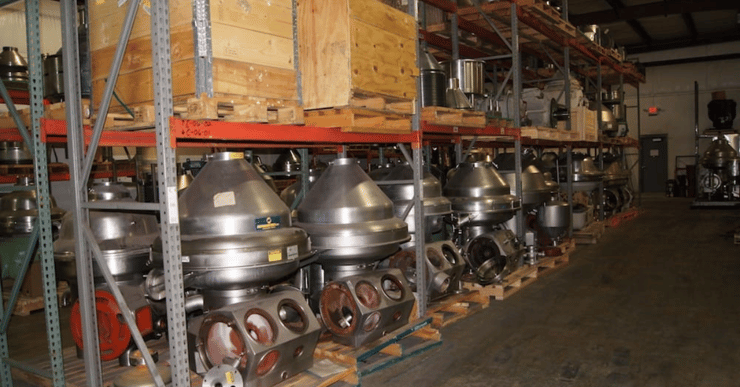
![How to Balance a Centrifuge with Separators [SlideShare]](https://www.separatorsinc.com/hs-fs/hubfs/Blog/Images/2019/December/SEP-How-to-Balance-Centrifuge-Bowl-New-Blog-Cover-Image.png?width=740&name=SEP-How-to-Balance-Centrifuge-Bowl-New-Blog-Cover-Image.png)

-732762-edited.jpg?width=740&name=Banner%20(1)-732762-edited.jpg)
